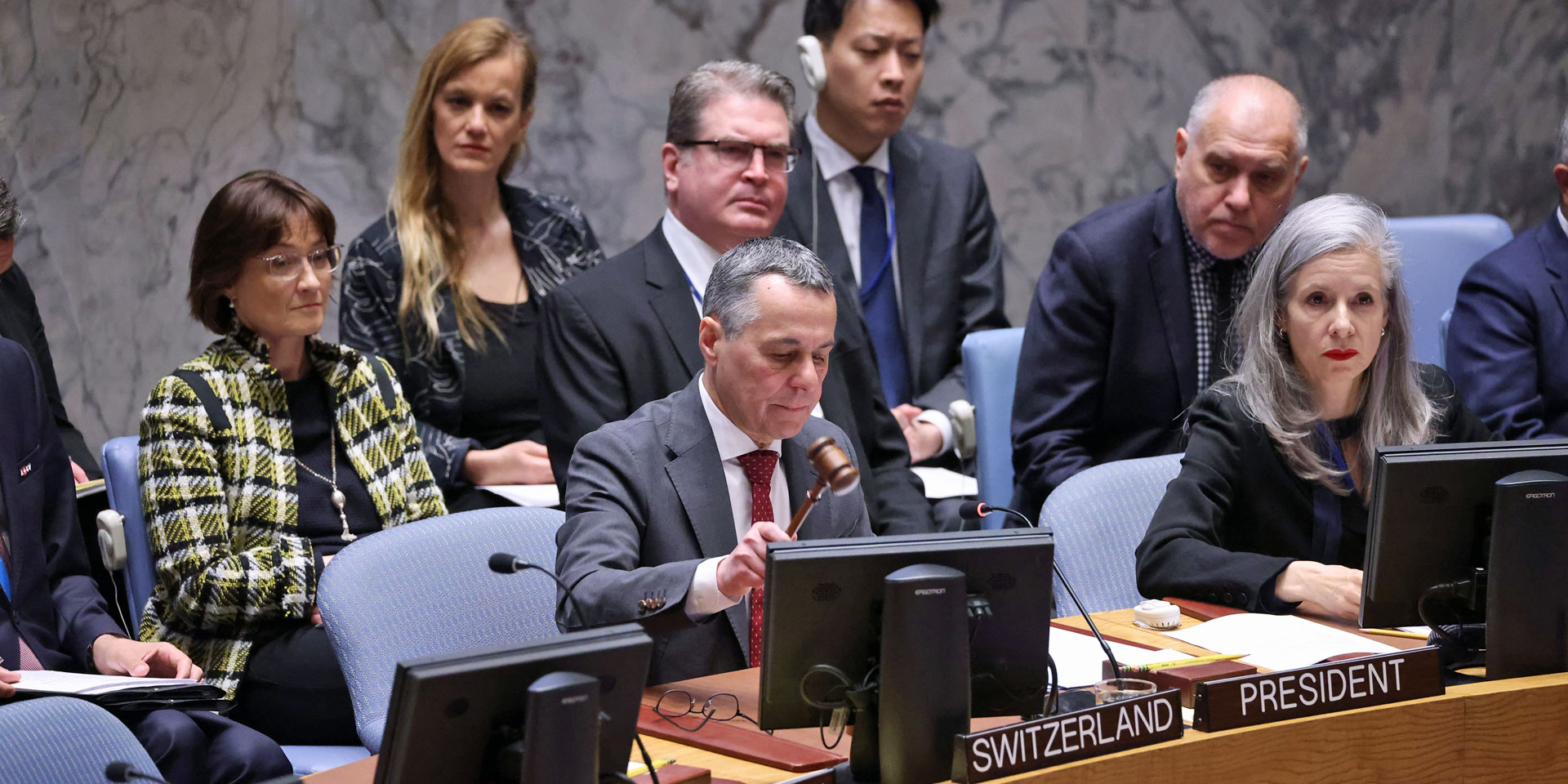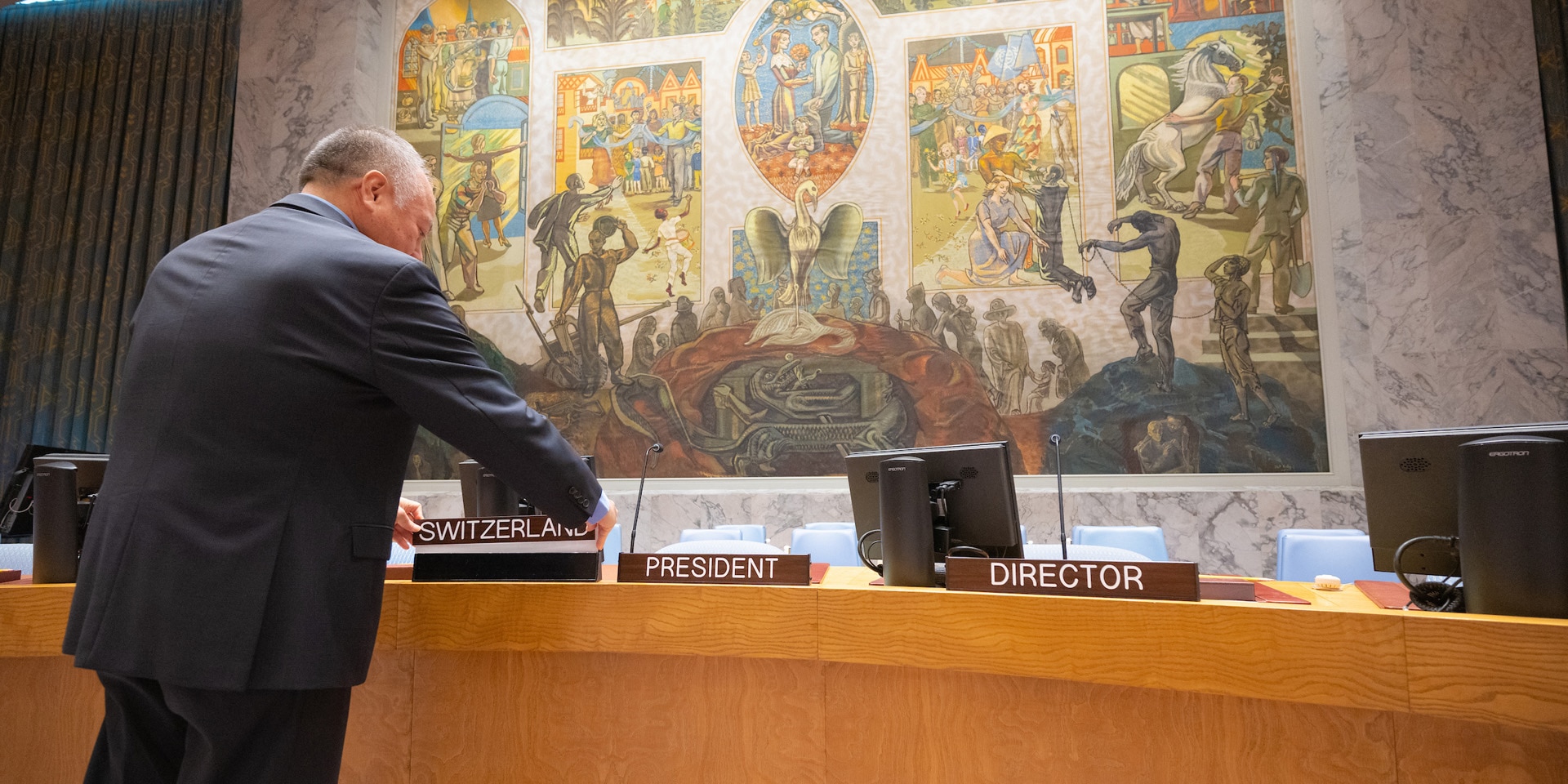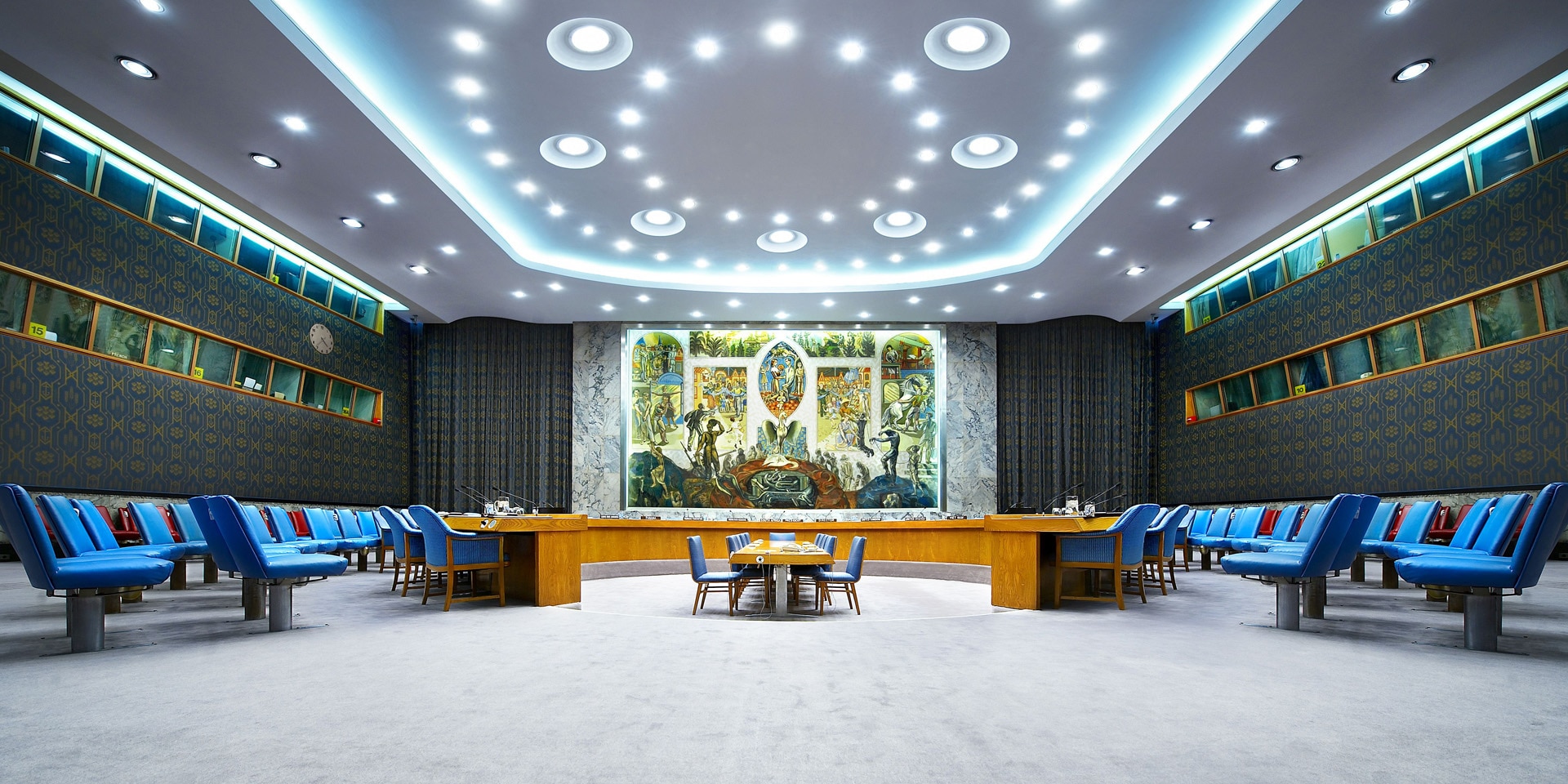129 states set an example for responsible action in the case of war crimes
During Switzerland's presidency of the UN Security Council, the ACT Group, which advocates for an effective UN, celebrated its tenth anniversary. Within the group, Switzerland has promoted a code of conduct by which states voluntarily commit themselves not to vote against resolutions in the UN Security Council aimed at preventing or ending war crimes and crimes against humanity. 129 UN members or observers have signed it to date. This is a strong signal to the Council and should strengthen its effectiveness – a priority for Switzerland for its Council membership.
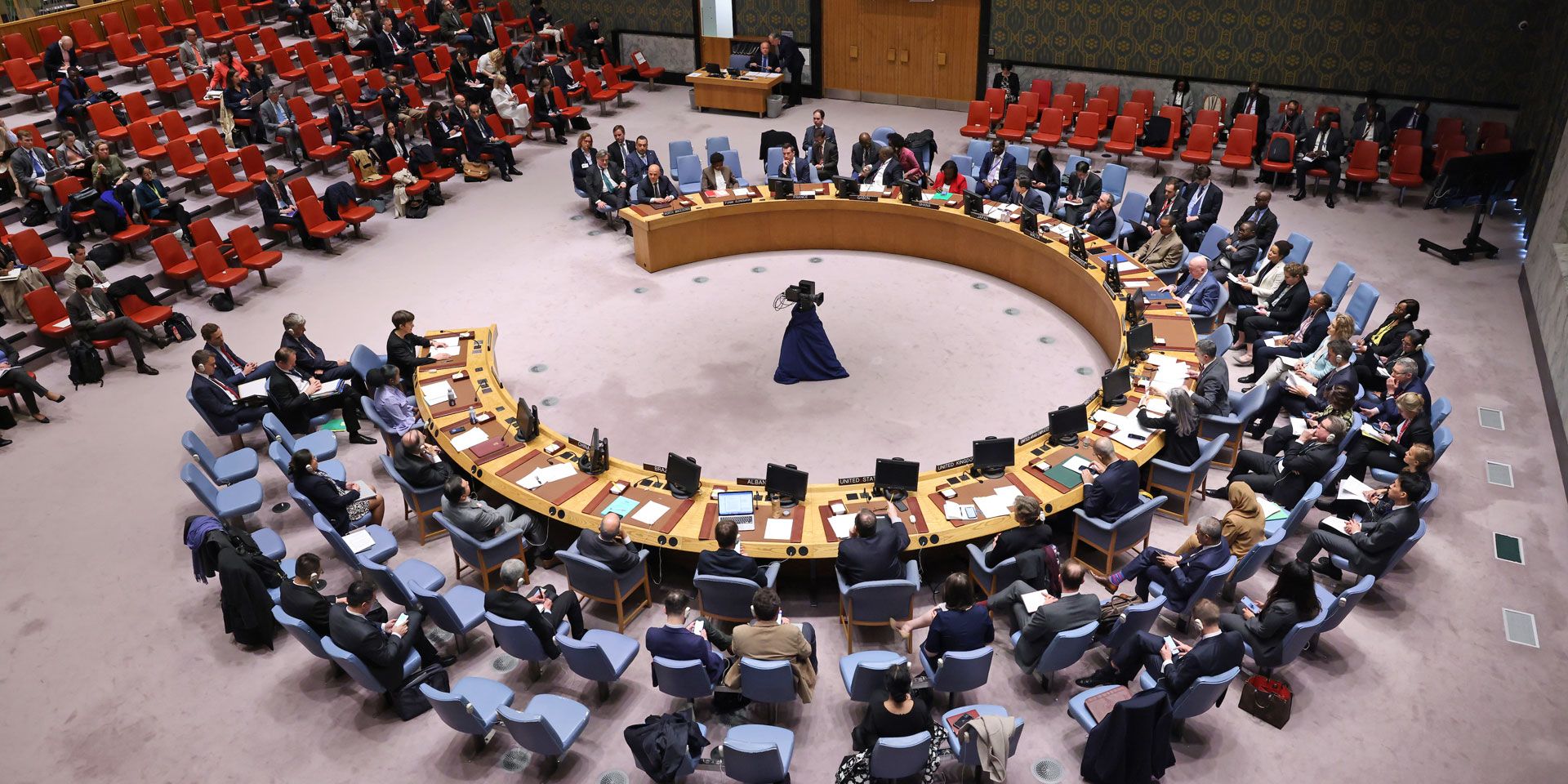
With its involvement in the ACT Group, Switzerland has been aiming to strengthen the efficiency of the UN Security Council for over ten years. © FDFA
Switzerland has long been committed to an effective and efficient UN. This includes the UN Security Council and its working methods. Switzerland coordinates the ACT Working Group, which is composed of 27 states from all regions of the world and works for accountability, coherence and transparency. Within this framework, Switzerland has initiated various reforms, including the Code of Conduct on Genocide, Crimes against Humanity and War Crimes. By joining the Code, states voluntarily commit themselves not to vote against a draft resolution of the Security Council in which the Council takes measures to end these crimes.
In the run-up to the tenth anniversary of the ACT Group on 2 May, Switzerland encouraged various states to support the Code. The number could thus be increased. Currently, 129 UN members or observers, including the two permanent Security Council members France and the United Kingdom, have signed the Code. This corresponds to two thirds of the UN General Assembly and sends a strong signal to the Security Council: it is the necessary majority to approve important decisions of the UN General Assembly. Switzerland has promoted the drafting of the Code together with Liechtenstein.
The non-governmental organisation "Security Council Report" has been closely following events around the Security Council for years. Shamala Kandiah, COO of Security Council Report, talks in an interview about the current challenges facing the Council.
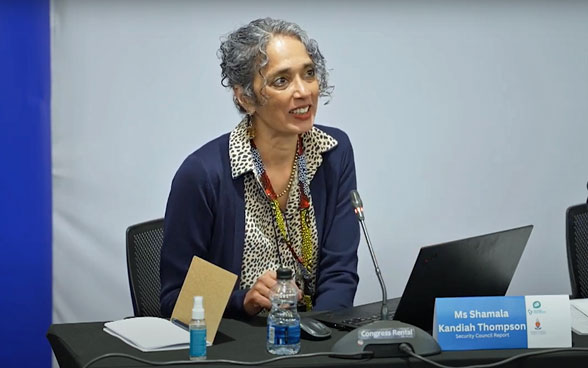
Security Council Report conducted a study on the working methods of the Security Council, what were the most important findings?
The major crises of the last three years did not paralyse the Council but they forced the Council to adapt its working methods to meet the new realities. This changed and challenged how the Council exercises its role and illuminated the role of working methods as the Council’s foundation for functioning in hard times. During this time the Council adapted and innovated but there was also a cost in efficiency and transparency. It was also clear, that geopolitical tensions shaped the Council’s working methods during these years. Relations among the permanent members were fraught before the pandemic, and the crises deepened divisions and escalated tensions. This resulted for example in a high number of non-unanimous decisions. Nearly every outcome is hard fought. There are few easy negotiations and compromises are needed to secure agreement on any kind of outcome.
What role did ACT have on the working methods of the UN Security Council?
ACT played an important role during the pandemic in pushing for greater interaction between the wider UN Member States and the Security Council. It wrote regularly to the Council to remind it of the need for greater transparency and accountability during a time when access to the work of the Council was sometimes more limited. The ACT Group members were also instrumental in reinstating the participation of non-Council members in open debates of the Council as the Council resumed meetings in person meetings.
What can the elected members and countries such as Switzerland contribute in terms of working methods?
The elected members have often been the drivers behind innovative working methods. Elected members held presidencies during the early part of the COVID-19 pandemic and were key to the development of the working methods used during this period. Elected members chair the Informal Working Group on Documentation and Procedural Matters. This gives them the lead role in negotiating Council products on working methods. They have also for some years made their voices heard on the issue of a more equitable distribution of work and greater burden sharing. In addition, elected members, like Switzerland, that have been strong advocates of transparency of the Security Council are able to make sure that the voices of other UN member states are heard.

